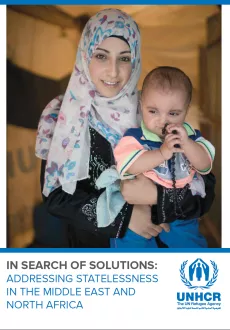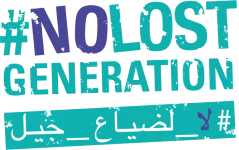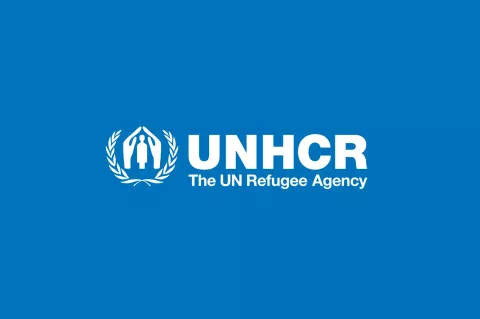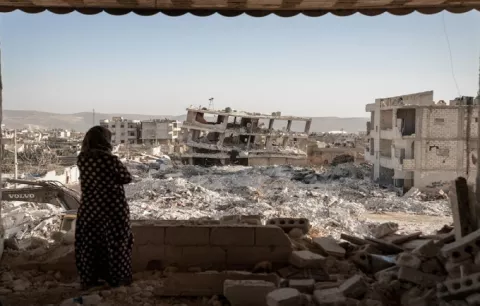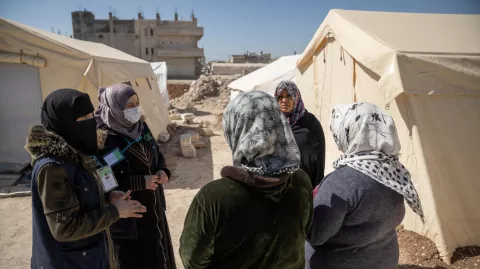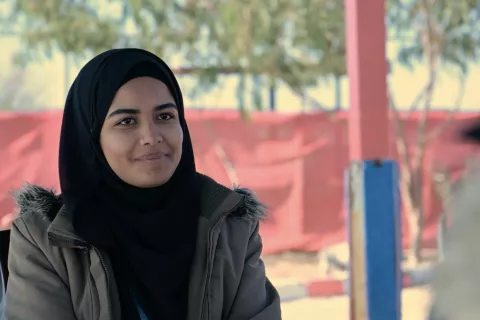In search of solutions: addressing statelessness in the Middle East and North Africa
UNHCR
Highlights
Over 10 million people are stateless worldwide, with no region of the world untouched by the issue. For stateless people, the lack of a nationality deprives them of rights that the majority of the global population takes for granted.
Since 2012, the rise of conflict and instability in the region has created new risks of statelessness among displaced and vulnerable populations, while also exposing existing stateless groups to greater hardship and uncertainty. The crisis in Syria has precipitated what is now the world’s largest refugee situation under UNHCR’s mandate. Half of Syria’s population is now displaced, with many separated from their family members and without basic documentation of their identity, family links or nationality. Some 2.5 million Syrian children now live as refugees and 6 million inside Syria are in need of humanitarian assistance.
Approximately 300,000 Syrian children have been born in exile as refugees, and 709,000 Syrian refugee children under the age of four were born during Syria’s ongoing conflict. While the vast majority of these children are Syrian nationals, it is notable that Syrian refugee children acquire their nationality exclusively through their fathers. It is of particular concern, therefore, that the conflict has left one-fourth of Syrian refugee households with no fathers to attest to the children’s nationality. These children are at risk of statelessness if left without legal documentation of their paternity. Adults displaced by conflict and whose documentation is lost, destroyed or confiscated may also face a certain risk of statelessness if it becomes impossible to replace their documents due to the destruction of original civil registries in certain locations, which has been reported in Syria. The absence of this documentation also impacts on the registration of subsequent divorces, deaths, marriages, and births—all of which can, in turn, also affect a Syrian child’s acquisition of nationality.
The conflict in Syria has also led to forced displacement and protection risks among groups that were already stateless in Syria, including certain Kurdish populations.
UNHCR has examined how conditions in the Syria crisis are impeding access to nationality, or the confirmation of nationality in the form of identity documentation, along with the immediate and longer term protection concerns raised by these gaps. UNHCR has focused on how various sectors of the refugee response as well as the response to the displacement situation inside Syria can reduce and mitigate the risk of statelessness, while also improving the protection, security and dignity of those displaced.
